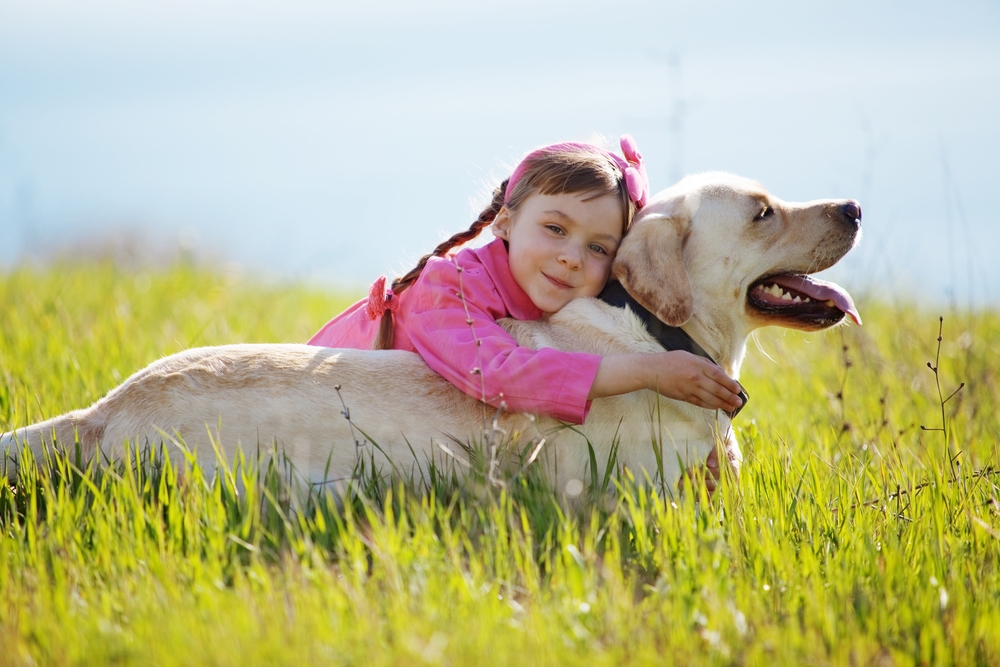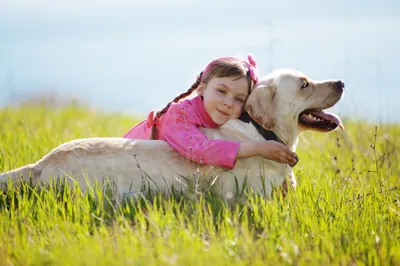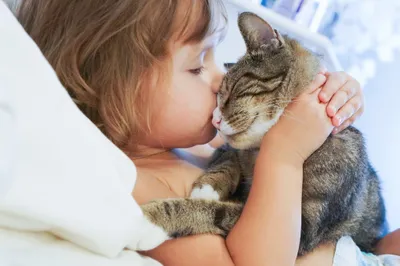Whether they be feathered, scaled, furry or gilled, the relationships we develop with our pets is one of love and companionship. When it’s time to say goodbye, helping your child prepare for the inevitable can be heartbreaking. Here are a few tips to help them cope with the loss of a beloved pet…
1. Prepare Your Child if You Have the Time
Whether your pet is suffering from old age or an illness, if you know the day is looming near, take the time to prepare your child. Make sure you take into consideration your child’s age, maturity level and previous experiences with death to determine the scope of the conversation.
Stick to the facts and provide your child an age appropriate explanation and answer their questions honestly. For young children, losing a pet can be their first experience with death. Talking about the loss is one of the best ways to cope.
2. Encourage the Honest Expression of Feelings
A pet funeral or memorial service can be a time where the whole family can share memories and stories about the pet who died. Acknowledging your grief and allowing your children to express their feelings can help everyone begin to feel better after losing your furry companion.
Being honest about your pet’s death is a valuable life lesson and it helps to prepare your child and learn how to cope for the next time your child experiences a loss.
3. Don’t Use the Term Went “to Sleep”
Depending on your child’s age, if they can’t understand the concept of death, avoid saying that your pet went “to sleep” or “got put to sleep.” Young children tend to interpret things quite literally, so using the word “sleep” can invoke frightening thoughts when bedtime approaches and it’s time for the family to go to sleep.
Another phrase you want to avoid telling your child that you’re pet went to the farm. Although this may be an easier way to explain why your pet is no longer at home, in the long run it will raise more questions and cause more concern for the animal’s wellbeing.
4. Share Your Grief
Share your sorrow and heartache and if you have the opportunity, encourage them to cuddle their friend one last time to say goodbye. This special cuddle can also be photographed and framed, so your child has something tangible to hold on to during their grieving period.
During moments of grief over the next few months, take the time to share fond memories and reminisce about your dearly departed pet.
5. Honoring Loss for Teens
If you have a teenager, chances are they grew up with your pet. Losing a pet can be as dramatic as losing a family member, so when your pet dies, a period of grieving is to be expected.
You may be tempted to fill the void with a new furry friend, but it’s recommended that you wait until everyone in the family has had time to grieve and is ready to welcome a new pet into the family.








